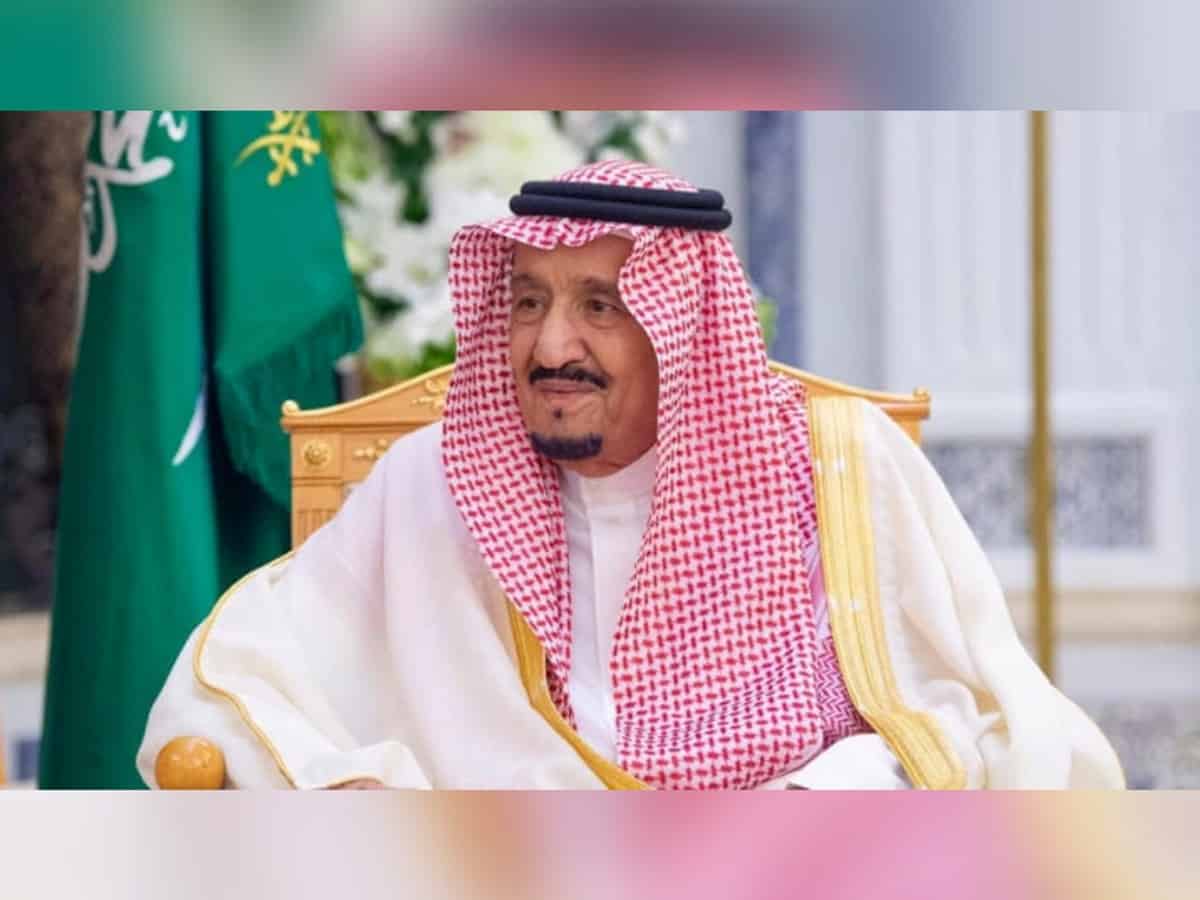
Riyadh: Saudi Arabia’s King Salman bin Abdulaziz on Sunday said that his country is working hard to support the stability and balance of global oil markets, in the latest response to US accusations about Riyadh’s siding with Russia.
During his speech in the annual royal speech to the work of the third year of the eighth session of the Shura Council, he said that the Kingdom “is striving towards ensuring the combined immunity of the three pillars of the energy world, namely the security of necessary energy supplies, continuous economic development by providing reliable energy sources, and facing Climate change.”
King Salman further adds, “Our country is also working hard, within its energy strategy, to support the stability and balance of global oil markets, describing oil as an important element in supporting the growth of the global economy.”
“This is reflected in its pivotal role in establishing and maintaining the (OPEC +) agreement as a result of its initiatives to accelerate the stability of markets and the sustainability of their supplies,” he added.
OPEC+ group, consisting of the thirteen member states of the Organization of Petroleum Exporting Countries (OPEC), led by Saudi Arabia and its ten partners led by Russia, decided on October 5 to cut oil production quotas in order to support the falling crude prices.
Russia is profiting from high oil prices as it relies on fuel sales to fund its war in Ukraine.
The White House considered that the decision to cut production, which is in Moscow’s interest, means that Riyadh decided to stand by Russia, while Washington is trying to deprive it of its sources of income, especially in the energy sector, in response to its attack on Ukraine.
On Sunday, October 16, White House National Security Adviser Jake Sullivan repeated on CNN Biden, “He said he would re-evaluate our relations with Saudi Arabia because it sided with Russia against the interests of the American people.”
“These relations were built over decades with bipartisan support, so the president will not move in haste,” he added, but stressed that Biden had “no intention of meeting the crown prince at the G-20 summit” next month in Indonesia.
The adviser explained that among the possibilities presented in the context of reassessing relations with Riyadh are “changes in our approach to military aid to Saudi Arabia.”
In the face of American anger, Saudi officials have defended the decision to cut production as serving the kingdom’s interests.
Defense Minister Prince Khalid bin Salman, the king’s son, wrote on his Twitter account on Sunday, “Although the OPEC decision, which was taken unanimously, was purely for economic motives, some accused the Kingdom of siding with Russia! Iran is also a member In OPEC, does this mean that the Kingdom has stood by Iran as well?”
“We are surprised that the Kingdom is accused of siding with Russia in its war against Ukraine. It is worth noting that these false accusations did not come from the government of Ukraine,” he added.
Washington also accused the kingdom of “twisting the arm” of other OPEC members “to get what it wants.” However, many member states of the group issued similar statements to confirm that the decision to cut production was unanimous.
UAE Oil Minister Suhail Al Mazrouei wrote on Twitter on Monday, “I would like to confirm that the recent OPEC decision to cut production was a purely technical decision and was made unanimously and not a political decision as some are trying to describe.”
In turn, the CEO of the Kuwait Petroleum Corporation, Sheikh Nawaf Saud Al-Sabah, welcomed the decision of OPEC Plus, which includes other major producers led by Russia, and said that his country is keen to maintain a balance in the oil markets.
In Manama, Minister of Oil and Environment Mohammed bin Mubarak bin Dina said that the decision to reduce oil production “came by consensus and consensus among all member states of the organization, and after a purely detailed technical study specialized in the conditions and developments of global markets.”
Oman released a similar statement on Sunday, stating that Opec decisions are based on “technical studies” and “economic considerations”.
“The recent decision of Opec+ to cut production is in line with its previous decisions in terms of its reliance on market data and its variables, which was important and necessary to reassure the market and support its stability,” Oman’s energy ministry said on Twitter.



